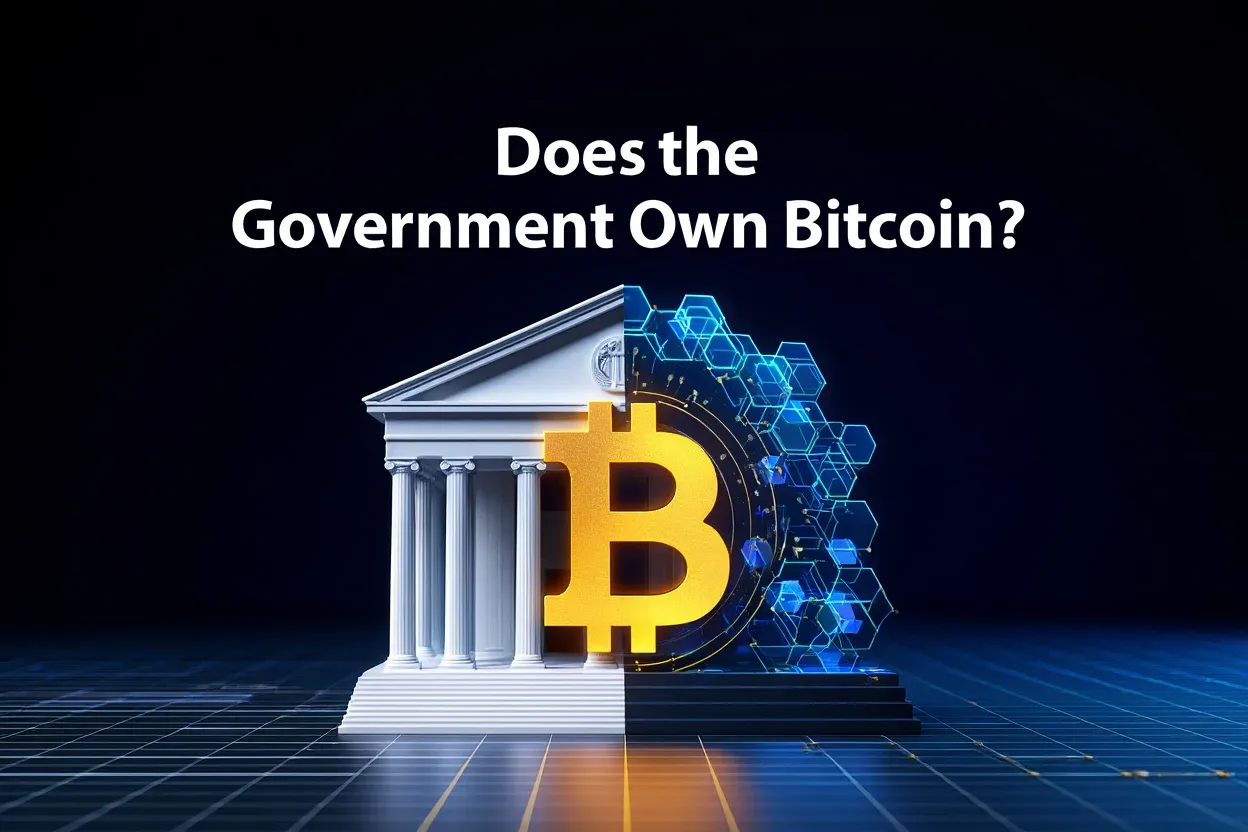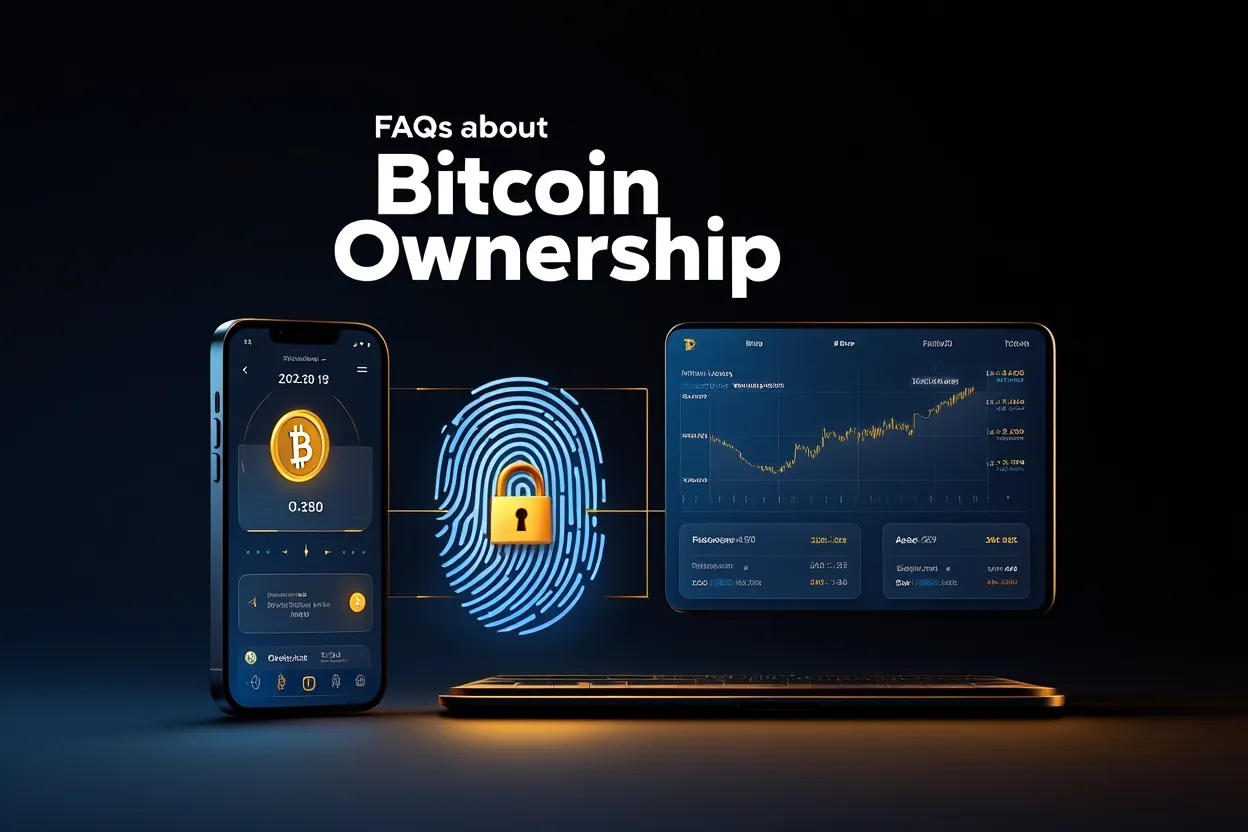Bitcoin, the world’s first and most well-known cryptocurrency, has captured global attention not only for its technological innovation but also for its investment potential. As the price of Bitcoin continues to fluctuate and the conversation around crypto ownership grows, many investors, from beginners to seasoned professionals, find themselves asking: Who owns the most Bitcoins?
Understanding who holds large amounts of Bitcoin is key to evaluating the market’s decentralization, potential risks, and long-term opportunities. With Vietnam-ustrade, let’s take a closer look at the top individuals who own the most Bitcoin in the world, and besides them, are there any other organizations that own the most amount of bitcoins?
1. Who owns the most bitcoins: The top individual whales
Individual whales are large private investors who hold more than 1,000 BTC each. These investors often include early adopters who bought Bitcoin when it was relatively unknown, as well as tech entrepreneurs who see BTC as a store of value or strategic asset.

1.1 Satoshi Nakamoto (1.1M BTC)
Satoshi Nakamoto is the founder of Bitcoin as the individual who owns most of the bitcoins and is believed to own approximately 1.1 million Bitcoins, which represents about 5% of the total Bitcoin supply enormous amount of wealth.
These Bitcoins are spread across thousands of unique wallet addresses and have remained inactive since they were first mined.
Determining the exact amount is challenging, mainly because Satoshi prioritized anonymity. However, crypto analyst Sergio Damian Lerner identified a unique mining pattern that likely belongs to Satoshi, estimating the total holdings at roughly 1.1 million BTC.
BitMEX Research offers a more conservative estimate, suggesting Nakamoto’s holdings are between 600,000 and 700,000 BTC. Even at this lower range, Satoshi would still rank among the richest individuals worldwide.
The crypto community closely monitors this wallet, as any transaction could significantly impact Bitcoin’s price volatility.
For example, in January 2024, a transaction of 26.9 BTC was sent to the original Genesis block address symbolic act that raised the balance to nearly 100 BTC and sparked widespread discussion within the crypto space.
- If these coins were ever moved, it would cause massive waves across the market.
- The inactivity of Satoshi’s coins has become a foundational trust element in Bitcoin’s culture.
1.2 The Winklevoss Twins (70,000 BTC)
Cameron and Tyler Winklevoss, famously known as the Winklevoss twins, launched the Gemini crypto exchange back in 2014.
Recently, they each donated 15.47 Bitcoin, totaling 30.94 BTC and valued at around $2 million, to support Donald Trump’s presidential campaign. However, a portion of this donation was returned due to legal contribution limits.
The twins originally gained attention after using their $65 million Facebook lawsuit settlement to invest in Bitcoin early on.
Their forward-thinking move into Bitcoin established them as notable Bitcoin holders,recognized across the crypto community. They reinforced this position by founding Gemini in 2015, further anchoring their influence in the blockchain industry.
Currently, it’s estimated that they collectively possess about 70,000 Bitcoins.
1.3 Tim Draper (29,656 BTC)
Venture capitalist Tim Draper gained attention in 2014 by purchasing about 29,500 BTC at a U.S. Marshals auction. These Bitcoins were confiscated from the Silk Road marketplace, which had been shut down. Draper’s bold investment has since proven extremely profitable.
1.4 Michael Saylor (17,732 BTC)
Michael Saylor founded MicroStrategy (now Strategy) and was its longtime CEO before becoming chairman in 2022. Once a billionaire during the dot-com era, he lost much of his wealth after SEC charges led to a stock crash.
He later rebuilt his fortune through heavy investments in Bitcoin. As chairman, he has directed billions into BTC, personally owning 17,732 Bitcoins (worth ~$1.5B). His net worth is now around $ 4.8 B.
2 Corporations & institutions That Own Bitcoin
As Bitcoin continues to gain traction as a valuable asset, numerous corporations and institutions have begun incorporating it into their financial strategies.

2.1 Public traded companies
- Strategy (MSTR) – 580,250 BTC
Strategy (formerly MicroStrategy) began accumulating Bitcoin in August 2020 and is now one of the top institutional Bitcoin holders as a hedge against inflation and currency devaluation. CEO Michael Saylor stated that Bitcoin is a superior store of value compared to cash.
The company is now the largest public holder of Bitcoin, owning nearly 10x more than the next closest firm. Its BTC investment has driven massive stock growth, with MSTR shares rising over 420% in 2024.
- MARA (Marathon Digital Holdings) – 48,237 BTC
Headquartered in Florida, MARA is one of the top global Bitcoin mining companies with a hash rate of 50 EH/s. Besides mining, it has followed Strategy’s lead by using debt to acquire more Bitcoin. Its holdings include 7,377 BTC currently loaned out. The combination of mining output and financial strategy positions it as the second-largest corporate holder.
- Riot Platforms – 19,211 BTC
Based in Texas, Riot is also a major Bitcoin miner. In 2025, the company adjusted its strategy to not only rely on mining but also use debt to increase its Bitcoin reserves. As of late May, it held over 19,000 BTC, highlighting a growing focus on long-term Bitcoin accumulation.
2.2 Private traded companies
- Stone Ridge Holdings: The parent company of NYDIG, which specializes in Bitcoin-related financial services, holds 10,889 BTC as part of its broader commitment to the future of decentralized finance.
- Tether Holdings Limited: The issuer of the USDT stablecoin reported holding 100,521 BTC as of March 31, 2025.
- SpaceX: This prominent aerospace and satellite communications firm owns roughly 8,285 BTC.
See more related articles:
- What is wrapped Bitcoin? Expert insights into wBTC explained
- What is Bitcoin’s highest price? Full history explained
3. Does the government own Bitcoin?
Yes, governments also own Bitcoin, often through seizures in criminal investigations raising the question of government-owned Bitcoin and its role in price dynamics.

- The U.S. Government holds over 200,000 BTC from major cases like Silk Road.
- Bulgaria at one point reportedly held over 213,000 BTC from anti-corruption raids.
- These assets are typically held in secure cold wallets and occasionally auctioned.
4. Can you see who owns the most bitcoin?
Bitcoin is built on a public blockchain, meaning all transactions and wallet balances are visible to anyone. However, just because you can see the balance of a Bitcoin address doesn’t mean you know who owns it.
Each Bitcoin wallet is represented by a long alphanumeric string like: 1A1zP1eP5QGefi2DMPTfTL5SLmv7DivfNa. These addresses are not directly linked to a person’s name or identity, unless the user publicly reveals it or it’s traced via exchange data, legal investigations, or blockchain analytics.
Technically, we can see which wallets hold the most Bitcoin, thanks to blockchain transparency. Websites like BitInfoCharts or Blockchain.com Explorer list the top Bitcoin wallets by balance, ranked from largest to smallest. However, whether those wallets belong to an individual, an exchange, or an institution is not always clear.
For example, some of the largest wallets are actually cold storage addresses of centralized exchanges like Binance or Coinbase, holding funds on behalf of millions of users.
5. Who owns 90% of Bitcoin?
Blockchain data shows that the top 2% of Bitcoin addresses hold more than 90% of all existing BTC. However, this figure includes wallets operated by:
- Centralized exchanges like Binance, Coinbase, Bitfinex
- Institutional custodians like Fidelity, NYDIG
- Cold storage wallets containing pooled customer funds
These wallets don’t belong to single individuals. For example, Binance’s largest wallet may hold over 250,000 BTC, but that BTC is owned by millions of users, not the exchange itself. If we filter out custodial and exchange-held BTC, the actual concentration among individuals is much lower. Research suggests that:
- The top 100 individual Bitcoin holders control about 13–15% of the supply
- Early adopters and crypto whales make up most of this group
- Satoshi Nakamoto alone is believed to hold ~1.1 million BTC (5% of all supply)
6. Why the largest Bitcoin holders matter
They’re known as “whales” for a reason these huge Bitcoin owners can cause big waves in the crypto world with just one action. Whether you’re an investor, a crypto enthusiast, or someone searching for who owns the most amount of bitcoins, understanding these holders is essential. About this digital currency experiment, understanding who holds the most Bitcoin and how they use it is crucial.
6.1 They can move the market
Compared to gold or global stock markets, Bitcoin’s market capitalization is relatively small. When whales sell large amounts, traders often take it as a signal to sell too, causing prices to drop quickly. Conversely, when a major player is buying quietly, it’s viewed as a sign of confidence, usually pushing prices up.
Take Tesla’s $1.5 billion Bitcoin purchase in 2021 as an example it sparked a big price increase. But when Elon Musk reversed his stance on accepting Bitcoin for Tesla vehicles over environmental concerns, the market plunged.
And what about Satoshi Nakamoto? The crypto community holds its breath whenever rumors circulate that the mysterious creator might move the roughly 1 million untouched BTC.
6.2 They affect scarcity, which impacts price
Bitcoin’s total supply is capped at 21 million coins. This built-in scarcity is a key part of its value. When whales hold large amounts without selling often called “HODLing” it limits supply. If demand increases while supply remains tight, prices tend to rise.
For instance, Strategy Inc. alone controls over 1% of all Bitcoins, and such hoarding impacts market dynamics. Additionally, an estimated 3–4 million Bitcoins are permanently lost or discarded hardware, making the remaining coins even more valuable and giving whales more relative influence.
6.3 They challenge decentralization
Bitcoin was designed to be a decentralized currency without banks or middlemen. Yet, concerns arise when a small group of Bitcoin holders early adopters and institutions control a significant portion of the supply.
Early miners still hold large amounts of Bitcoin mined when it was essentially free. Exchanges like Binance and Coinbase hold millions of BTC for users, meaning the platforms effectively control those coins despite individual ownership. Meanwhile, Wall Street giants like BlackRock and Fidelity are acquiring Bitcoin via ETFs, potentially steering Bitcoin’s future if their influence grows too large.
6.4 They shape the network’s development
Bitcoin operates on proof-of-work, where miners verify transactions, not holders. However, big Bitcoin owners can heavily influence development by funding projects, supporting forks, or opposing changes, thus directing Bitcoin’s future.
For example, the 2017 Bitcoin Cash fork occurred because some whales and miners wanted larger blocks and a different path for the network.
If Bitcoin ever shifts from proof-of-work to proof-of-stake, the biggest holders would gain even more control over how the network runs.
7. FAQs about Bitcoin ownership

7.1. Who is the richest Bitcoin owner?
Most likely Satoshi Nakamoto, with over 1.1 million BTC.
7.2. How much Bitcoin does the U.S. government own?
Estimates suggest over 200,000 BTC, mostly seized from criminal cases.
7.3. Are Bitcoin whales dangerous?
They can influence prices, but many are long-term holders.
7.4. What happens if Satoshi moves their coins?
The market could react strongly, potentially triggering a selloff.
7.5. Can governments control Bitcoin?
Bitcoin is not directly decentralized. But regulations, custody, and taxation are areas of control.
7.6. Is Bitcoin really decentralized?
Technologically, yes. But economically, ownership is concentrated, which complicates the narrative.
7.7. Can exchanges freeze or lose user BTC?
Yes, which is why many advocate for “not your keys, not your coins.
8. Conclusion
Knowing who owns the most Bitcoins. A small number of entities control much of Bitcoin. However, the majority appear to hold their coins long term. Institutional adoption and government interest show that Bitcoin is evolving into a serious asset class.
For investors, the key is to understand these dynamics, stay informed, and focus on long-term value rather than short-term headlines. At Vietnam-ustrade, our mission is to bring you clear, unbiased insights into the world of crypto through Bitcoin category, helping you navigate complex topics with confidence, without hype or hidden agendas.





